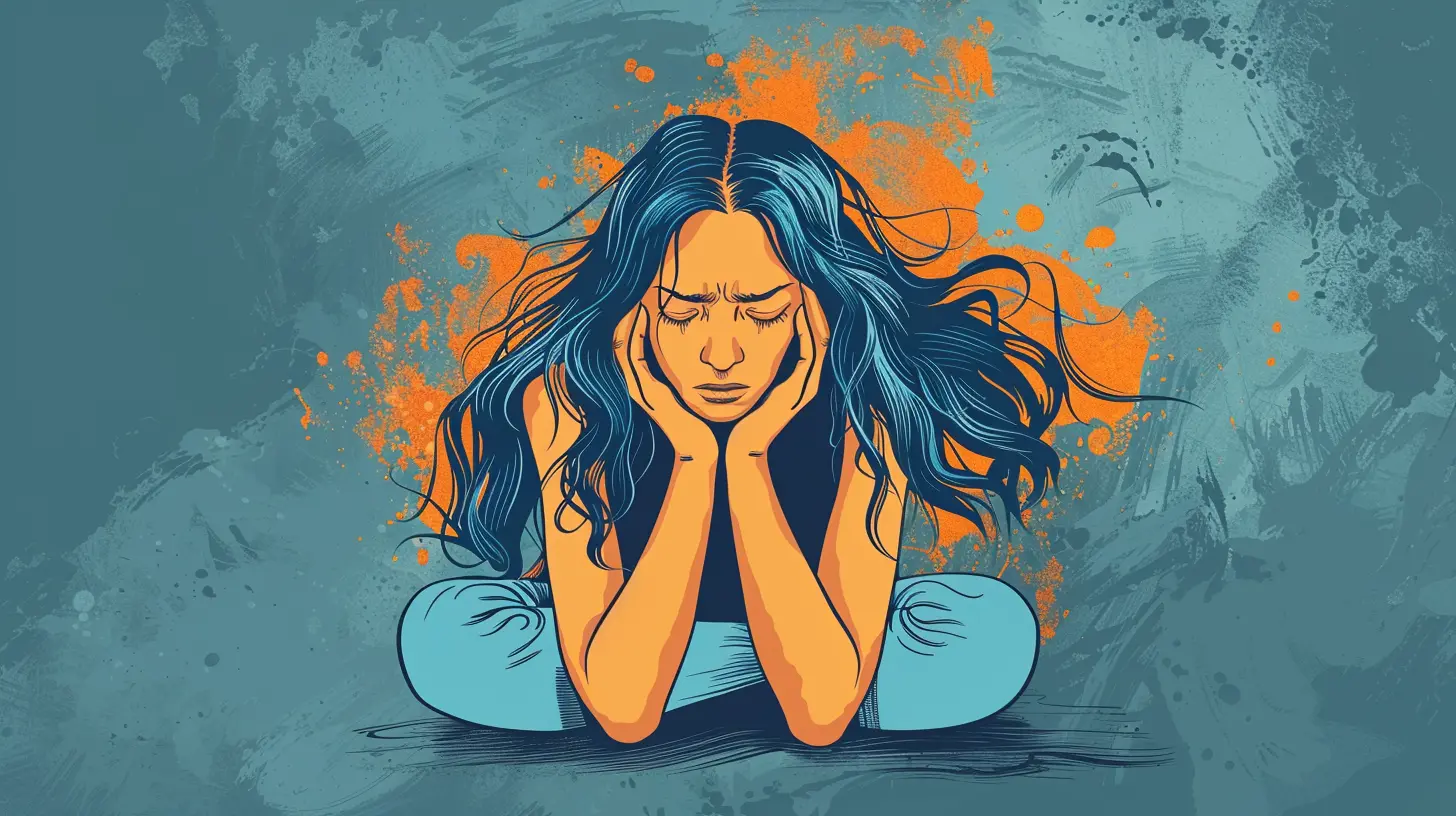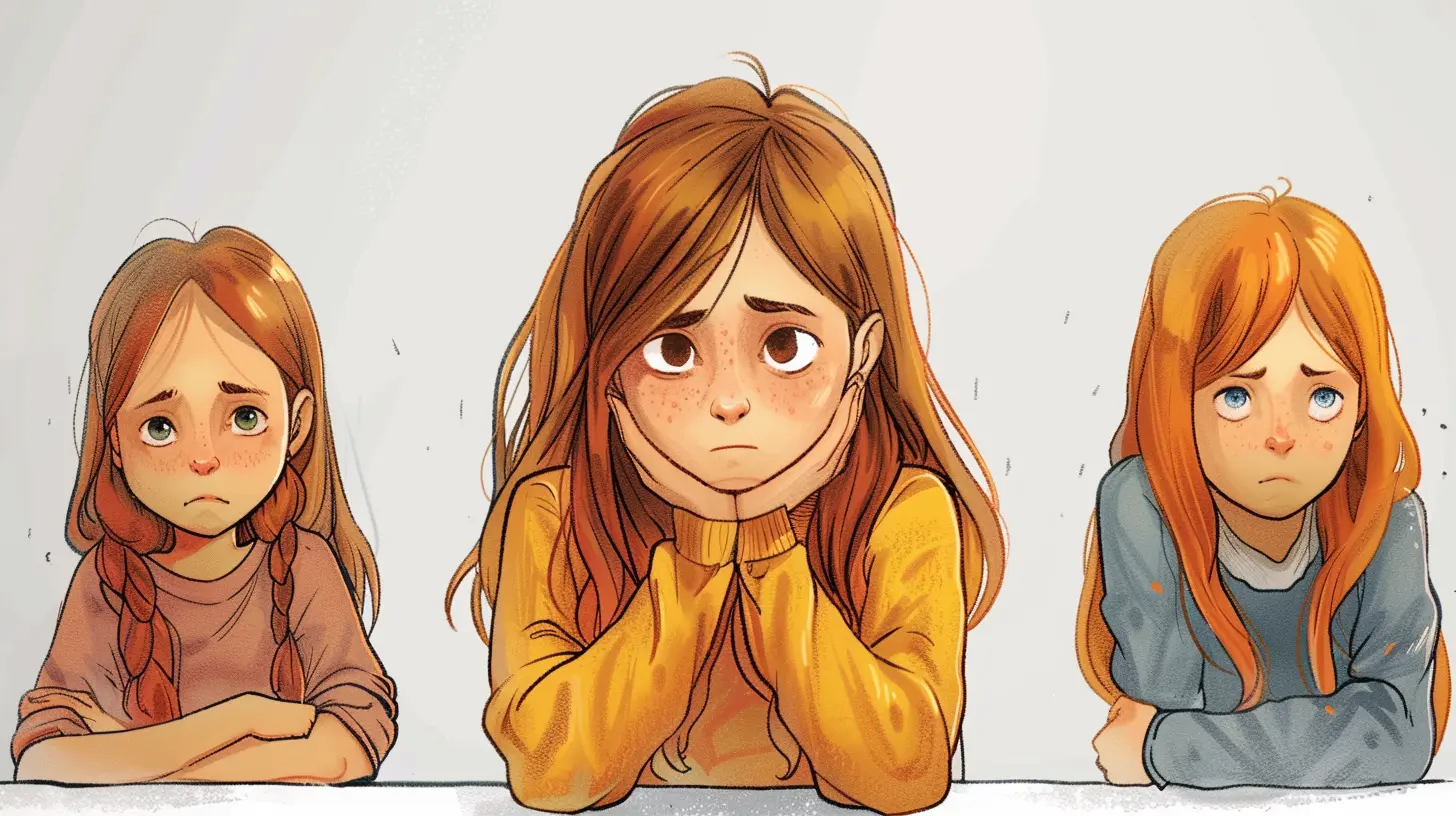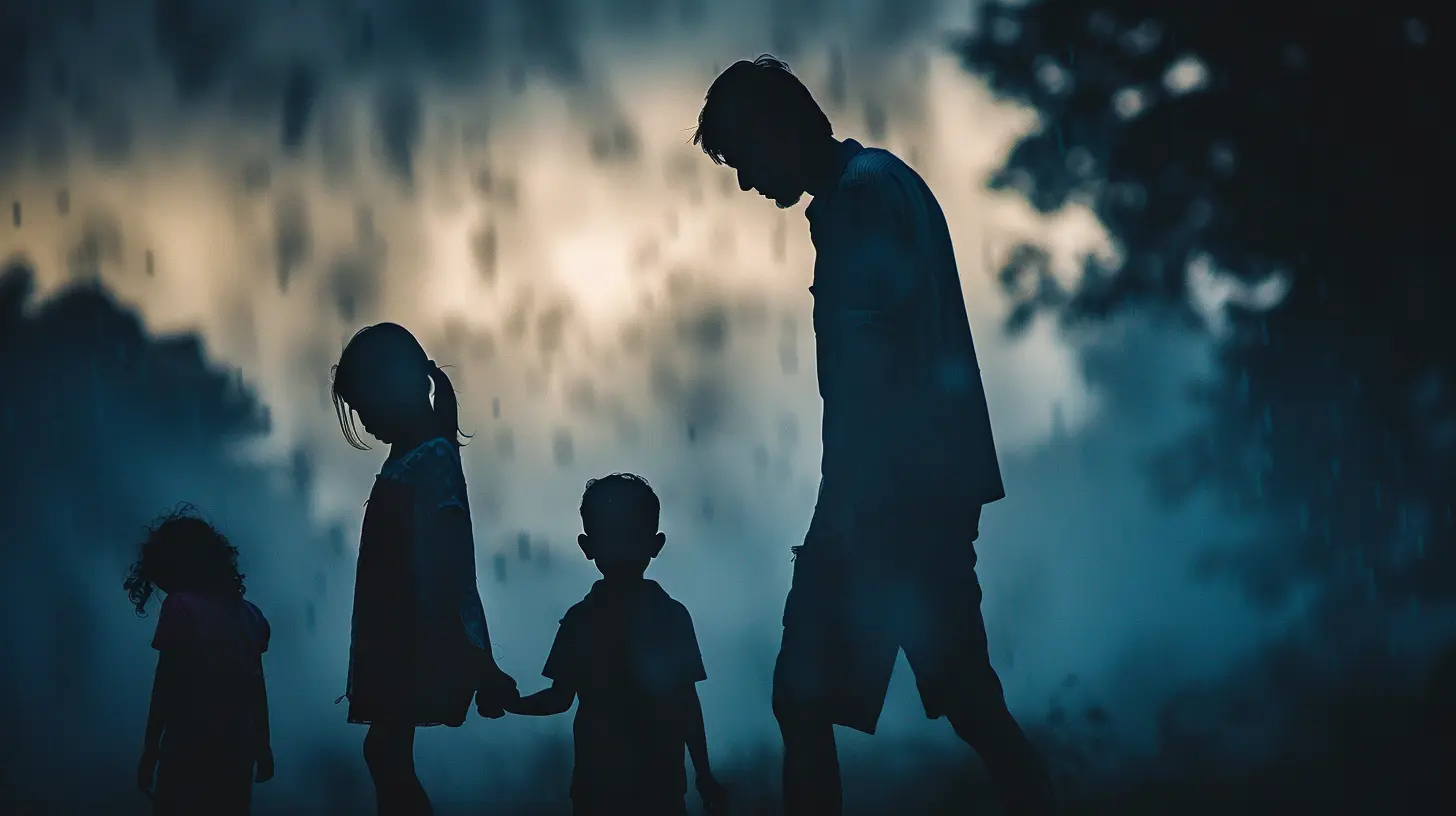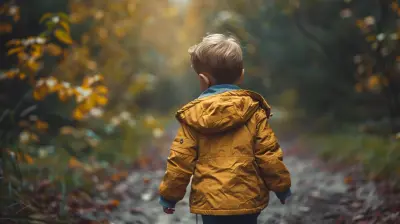Signs Your Child's Anxiety Is Affecting Their Social Life
8 August 2025
If you're a parent, you're probably used to seeing your child go through all kinds of phases—from picky eating to refusing to wear anything but their favorite superhero shirt. But what happens when the changes aren’t just about preferences or moods? What if your once chatty, playful child starts avoiding friends, skipping birthday parties, or clinging to you in social settings?
It could be more than just a phase. It might be anxiety—and it could be affecting their social life in some pretty big ways.
Let's get real here: all kids get nervous sometimes, especially in new or unfamiliar situations. But there’s a line between occasional jitters and signs that your child’s anxiety is starting to interfere with their everyday life—especially socially. The sooner you spot those signs, the sooner you can help them start feeling like themselves again.
What Does Anxiety Look Like in Kids?
Before we dive into the social side of things, let’s talk about anxiety itself. You might be picturing nail-biting, fidgeting, or crying. Sure, those can be part of it—but anxiety in children can show up in sneaky, unexpected ways. Sometimes kids don’t even know they’re anxious. They just know something feels “off.”Anxiety can look like:
- Avoiding certain places or people
- Acting out or having temper tantrums
- Complaining of stomachaches or headaches—especially before social events
- Being overly clingy with parents
- Meltdowns that don’t seem to make sense
Sound familiar? Now let’s zoom in on how this kind of anxiety affects their social life.
1. They Avoid Social Activities They Used to Enjoy
Remember when your kid used to light up at the idea of a sleepover or a trip to the playground? If they suddenly start backing out of those things—especially if it happens more than once—it could be a red flag.Let’s be honest—everyone needs alone time. But if your child is skipping birthday parties, playdates, or school events they used to love, that’s worth paying attention to. Sometimes they’ll make excuses: “I don’t feel good,” or “I wasn’t invited anyway.” Other times, they may flat-out refuse to go without explaining why. This isn’t just being introverted—it could be social anxiety creeping in.
2. They Struggle to Make or Keep Friends
Making friends isn't always easy, and not every child is a social butterfly. But if you notice your child frequently playing alone, being left out, or constantly switching friends, it may point to deeper struggles.Anxiety can make it hard for kids to engage with peers. They might overthink everything—Did I say the wrong thing? What if they don’t like me?—to the point where they just stop trying. Or they may come off as shy, aloof, or even rude because they’re too nervous to open up.
This kind of social struggle can become a vicious cycle: anxiety leads to isolation, which leads to more anxiety. And let’s be real—friendships are a huge part of growing up. They help kids build confidence, learn empathy, and navigate the messy world of relationships. Without them, your child might feel lost or lonely.
3. They Seem Overly Worried About What Others Think
Does your child obsess over what they said during class or replay conversations in their head? Do they panic over wearing the “wrong” clothes or worry that their friends are secretly mad at them?That fear of judgment is a major factor in social anxiety. And for kids, who are still developing their sense of identity, it can be really overwhelming. They may avoid speaking up in groups, refuse to try new things out of fear of looking “dumb,” or constantly seek reassurance.
It’s like they're walking through a minefield, tiptoeing around every social interaction in case they make a mistake. That kind of stress can take the fun out of just being a kid.
4. They Freeze Up or Go Silent in Social Settings
Some kids with anxiety get loud and dramatic. Others? They shut down. You might notice them clamming up during family gatherings, group projects, or even one-on-one conversations with peers.Silence can be their way of coping—it feels safer to say nothing than to risk embarrassment. But the result is often that they’re overlooked or misunderstood. Teachers might assume they aren’t paying attention. Other kids might think they’re not interested in being friends. It’s a quiet kind of suffering, and it often goes unnoticed.
5. They Have Physical Symptoms Before Social Events
Have you ever had a pit in your stomach before a big presentation? That’s your body reacting to stress. Kids feel it too, but they may not be able to connect the dots.If your child consistently gets “sick” before social activities—think stomachaches, headaches, nausea—they might be experiencing anxiety. And here’s the kicker: those symptoms are real. Their body is genuinely reacting to perceived danger, even if there’s no actual threat.
What’s tricky is that they may not realize it themselves. They might think they’re just unlucky or that something's physically wrong. But if it only happens before social events? That’s your clue.
6. They Overanalyze Social Interactions After the Fact
After your child comes home from school or a party, do they go on and on about something small that happened—like someone not laughing at their joke or a friend not sitting next to them?That kind of replaying is common in kids with social anxiety. Their brains go into overdrive, dissecting every little moment for signs of rejection or humiliation. It’s exhausting for them, and for you too.
You might hear things like:
- “Do you think they’re mad at me?”
- “I think I embarrassed myself.”
- “What if they never want to talk to me again?”
It’s tough to hear, right? Your instinct is probably to reassure them (and you should), but also recognize this as a potential sign of deeper anxiety.
7. They Cling to You in Social Situations
At first, this might seem kind of sweet—like your child just wants to be near you. But if they’re constantly glued to your side during family gatherings, community events, or even drop-off at school, that clinginess could be their safety net.For anxious kids, parents are their comfort zone. So when faced with unfamiliar people or settings, they’ll latch on. But here's the downside: If they never push past that fear, they never get the chance to build confidence on their own.
8. They Exhibit Perfectionist Tendencies in Social Settings
You might not associate perfectionism with social anxiety, but they're often linked. Kids with anxiety might feel like they need to say the "perfect" thing, behave the "right" way, or avoid mistakes at all costs.This can cause them to freeze up socially or opt out of group activities altogether. Instead of enjoying the moment, they're stuck setting unrealistic expectations for themselves—and then feeling horrible when they don’t meet them.
Sound like your child? They may need help managing those expectations.
9. They Withdraw After Social Interactions
Ever notice your child seems drained or irritable after spending time with friends or at school?Social anxiety can be mentally and emotionally exhausting. Even if everything seemed fine during the event, your child might come home totally wiped. They might retreat to their room, get snappy, or shut down altogether.
It's like running a marathon with a smile on their face—only to collapse the minute they cross the finish line. That post-social crash is another sign to watch for.
What You Can Do as a Parent
Okay, so what now? If some (or many) of these signs sound familiar, don’t panic. The good news: there’s a lot you can do to help your child manage their anxiety and thrive socially.1. Be a Safe Landing Spot
Let your child know it’s okay to feel anxious. Don’t minimize their feelings or say things like “Just get over it.” Instead, validate their emotions and let them know you’re in their corner.You might say:
"I know it’s scary to talk to new people. That’s totally normal. But I’m proud of you for trying."
2. Gently Encourage Social Interaction
Don’t force social events, but do encourage small steps. A short playdate with one trusted friend might be less intimidating than a big birthday party. Celebrate progress, not perfection.3. Watch Your Own Reactions
Kids pick up on our vibes. If you panic every time they panic, it reinforces their fear. Instead, model calm responses and problem-solving.4. Teach Coping Tools
Simple breathing exercises, visualization, or even having a “calm down” object in their pocket can help them cope in the moment.5. Seek Professional Support
If anxiety is interfering with your child’s everyday life, it might be time to talk to a therapist or counselor. There’s zero shame in getting expert help. It might just be the best gift you can give them.Final Thoughts
Anxiety is tough. Social anxiety in kids? That’s next-level hard. But here’s the truth: with awareness, support, and a whole lot of love, your child can absolutely overcome it. They deserve friendships, laughter, and confidence just like any other kid.So keep watching. Keep listening. Keep showing up. Because sometimes, the most powerful way to help your child find their voice... is by being the one person who hears them even when they’re silent.
all images in this post were generated using AI tools
Category:
Dealing With AnxietyAuthor:

Austin Wilcox
Discussion
rate this article
1 comments
Callista McQuaid
Recognizing the signs of anxiety in your child is crucial for fostering healthy social interactions. As parents, our proactive support can make a significant difference. Let's prioritize open communication and understanding to help our children thrive in their social environments.
August 29, 2025 at 3:50 AM

Austin Wilcox
Thank you for emphasizing the importance of open communication and proactive support. Recognizing and addressing anxiety early can truly empower our children in their social interactions.


